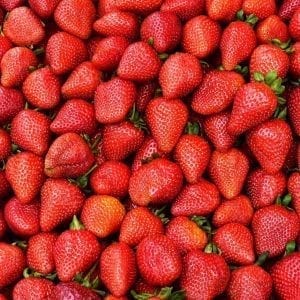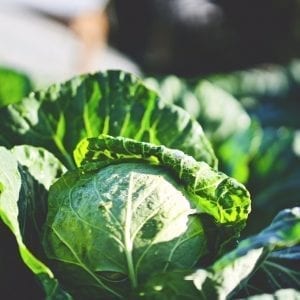Fifteen years ago, eating organic was somewhat taboo—nowadays, it’s all the rage, and rightfully so. But as moms, possibly on tight budgets, it’s challenging and at times stressful, to make our grocery carts 100% organic.
Organic foods are defined as those without pesticides, growth hormones, chemicals, and additives—these foods go through a rigorous process to be deemed as such. In fact, there are companies out there who don’t have the time or funds to go through the organic labeling process and thus they resort to calling their product “natural”. This means there may be foods labeled “natural” that are equally as clean as those labeled “organic”, but this does not apply to all natural foods, especially these days. It seems like more and more products are using that “natural” claim, however don’t let that fool you. Foods with the “natural” label are allowed to have antibiotics, growth hormones, and some chemicals in them. While that may leave you more confused than you were to begin with, it’s to make you aware as a consumer. Look further into the label—read the ingredients, research the company, and do the best you can.
As a Registered Dietitian and a Mom in a single-income family, we cannot afford to buy all the organic foods. Apples and strawberries are two items that I will always buy organic; if I can’t find them or if they’re too expensive that week, then I will just choose something else. I choose these two as my staples because we eat a lot of them. The Environmental Working Group came up with a list of fruits and veggies that are “dirtier” than others in terms of pesticides and chemicals. Review the list and consider where you can afford to make changes:
Apples-Apples have over 40 pesticides on them and this residue can live in applesauce and apple juice (see this for my thoughts on juice). I may be crazy but I have always noticed a funny taste after eating apples and it was only when I was older that I realized I didn’t spot the taste with organic apples. An apple a day keeps the doctor away, but if it’s not organic that may not be the case.
Strawberries/Berries/Cherries-I have paid up to $8 for a carton of organic strawberries. I have since learned to just choose another fruit when prices get that high, but I don’t like to go non-organic when it comes to this fruit. They are filled with pesticides, as are other berries. Their thin skin allows for a lot of penetration from the chemicals, plus many pesticides are used because the fruit is prone to growing fungus.
Grapes– I will be honest, I don’t always buy organic grapes—they’re expensive & one day my children like grapes and the next day they’re “too crunchy”. However, this is a fruit that is filled with pesticides and if you eat a lot of them, consider organic or perhaps another fruit. Keep in mind, wine comes from grapes so if you’re hitting the bottle a lot, you may want to find a fine, organic wine instead.
Celery– Celery grows above ground and has no shell or leaf to protect it, leaving it susceptible to pesticides.
Cucumbers– Cucumbers can have over 80 pesticides on them. Eighty!! They’re often hard to find organic, so try getting rid of the skin and you’ll feel somewhat better about eating this yummy vegetable.
Spinach, Leafy Greens– A recent study found that spinach was loaded with pesticides, possibly more than all other produce. I have noticed that it is easy to find organic spinach as well as other greens these days and it is most likely due to its high pesticide count—the price is typically about one dollar more than the non-organic and it is worth it.
Pears, Nectarines, Peaches– The pesticide levels in pears has grown over the years; studies have found cancer-causing chemicals in this fruit. Peaches and nectarines are also covered in chemicals. If you live near a farm that sells these fruits, you can ask them their pesticide policy—as stated before, many companies as well as farmers don’t have the means to go through the organic labeling process, but they may be using cleaner practices—just ask.
Tomatoes, Bell Peppers, Potatoes- Peppers rank as one of the highest pesticide covered veggies, and tomatoes and potatoes also make the list. I find it hard to find these organic, so choose asparagus, corn, or cauliflower as an alternative, if you are able.
Generally, foods with a peel or outer shell are safer to eat non-organic: things like oranges, pineapple, kiwi, avocados, and corn. But keep in mind, even foods not listed above may have chemicals in them. Washing and peeling will help, but it won’t rid the item of all things bad. Now that is not to say you need to swear off fruit and go for donuts instead. It just means to be aware of what is out there, buy the fruits and veggies you eat the most of from the organic section (if they’re a dirty food) if you are able.
Aside from produce, “going organic” is wise for meat, eggs and dairy products as well. Cows and chickens may be eating pesticide infested foods and those will still remain in their system and thus your meat, eggs, and milk, after they’re butchered, not to mention the use of antibiotics is very common in our meat and dairy supply. It is easy to find these products with organic or natural labels—even if the product is not labeled “organic”, look for “antibiotic-free” and “growth-hormone free” on the packaging.
Essentially, grocery shopping has become more of a chore than a routine sprint through the store. This can be frustrating for you as a mom who is short on time, but after a few trips of reading labels and packages and knowing what to look for, you can be a pro at making the best choices. Traditional health food stores will only shelf items that are organic or truly natural so this could save on time if you want to grab just a few things. Stores like Aldi are going towards more organic foods and they are often affordable. Look for sales: if organic beef or chicken is about to expire, they’ll mark it down and as long as you’re using it that day, it’s safe to use. The best thing to be is aware, and you are, so go out there, feed your fabulous family and remember to Balance Like A Mother.





Recent Comments